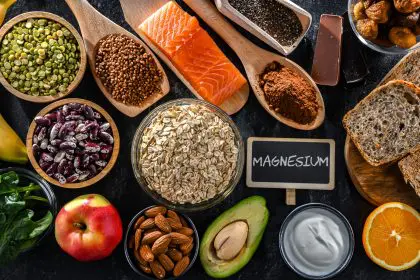In today’s fast-paced world, heart health has become one of the most critical aspects of overall well-being. With heart disease remaining a leading cause of death globally, it’s more important than ever to focus on ways to strengthen your heart. Many people overlook the fact that the heart — like any other muscle in the body — can be conditioned and fortified. By incorporating the right habits, you can not only improve your heart health but also extend your lifespan. This article will walk you through five powerful ways to strengthen your heart, giving you practical, actionable advice that you can start today.
1. Prioritize cardiovascular exercise
If you’re serious about strengthening your heart, cardiovascular exercise should be at the top of your list. Activities like walking, running, swimming and cycling all elevate your heart rate — helping your heart muscle grow stronger over time. Cardiovascular exercises encourage better blood circulation, improve oxygen delivery to your muscles and help your body remove waste products like carbon dioxide.
In addition to boosting heart strength, regular cardio helps lower blood pressure, reduce bad cholesterol (LDL) and improve good cholesterol (HDL) levels. The emotional benefits are also noteworthy. Studies have shown that exercise can help reduce stress and improve mood — which is critical since chronic stress can negatively affect heart health.
For those who are not already active, it’s essential to start small. Even a 30-minute brisk walk a few times a week can make a huge difference. Gradually increase the intensity and frequency of your cardio sessions. Before long, your heart will adapt, becoming stronger and more efficient at pumping blood.
2. Embrace a heart-healthy diet
What you eat has a direct impact on your heart. A balanced diet filled with fruits, vegetables, whole grains, lean proteins and healthy fats can protect your heart from disease and help it function at its best.
Incorporating foods like leafy greens, berries and fatty fish can help provide your heart with the nutrients it needs to stay strong. These foods are rich in omega-3 fatty acids, antioxidants and other vital nutrients that help reduce inflammation, improve circulation and regulate blood pressure.
Eating a heart-healthy diet can also have emotional benefits. Knowing that you’re doing something good for your body can boost your self-esteem and provide peace of mind. Plus, the physical energy gained from proper nutrition translates to a more active, enjoyable lifestyle.
3. Manage your stress levels
Stress is a silent killer when it comes to heart health. Chronic stress can lead to high blood pressure, increased heart rate and heightened levels of cortisol, all of which strain your heart over time. Finding ways to manage stress effectively is crucial in maintaining a strong heart.
One of the most effective stress management techniques is mindfulness. Practices such as meditation, deep breathing exercises and yoga have been shown to reduce stress levels significantly. These methods not only calm your mind but also relax your body, lowering your blood pressure and reducing strain on your heart.
The emotional connection between stress and heart health is undeniable. The more you focus on keeping stress levels low, the better you’ll feel both mentally and physically. A calm mind leads to a healthier heart, and over time, these benefits become long-lasting.
4. Quit smoking and limit alcohol intake
Smoking and excessive alcohol consumption are two habits that significantly increase the risk of heart disease. If you smoke or drink heavily, quitting or cutting back could be one of the most powerful things you can do for your heart.
Smoking damages the lining of your arteries, leading to a buildup of fatty material (atherosclerosis), which narrows the arteries. This condition can cause heart attacks, strokes and peripheral artery disease. Quitting smoking has immediate and long-term benefits for heart health — including reduced blood pressure and better circulation.
While moderate alcohol consumption may have some heart benefits, drinking too much can lead to high blood pressure, heart failure and even arrhythmias. If you choose to drink, stick to the recommended limits — one drink per day for women and two for men. Better yet, consider cutting it out altogether for optimal heart health.
Quitting smoking or cutting back on alcohol can be emotionally challenging. However, focusing on the positive impact it will have on your heart can serve as powerful motivation. Surround yourself with support — whether it’s friends, family or professional help — to make these changes sustainable.
5. Get enough sleep and practice restful habits
Sleep is often overlooked when it comes to heart health, but it plays an incredibly vital role. Studies have shown that people who don’t get enough sleep are at a higher risk for cardiovascular diseases. Sleep allows the body to repair and regenerate — which is crucial for heart health.
When you don’t get enough sleep, your body doesn’t have time to regulate blood pressure, leading to consistently high levels. Sleep deprivation can also lead to weight gain — a factor that increases the risk of heart disease. Aim for at least seven to eight hours of quality sleep every night to give your heart the rest it needs.
Good sleep hygiene is key. Establish a bedtime routine that helps you wind down, such as reading a book, practicing meditation or listening to calming music. Avoid heavy meals, alcohol and caffeine before bed — as they can interfere with sleep quality.
Emotionally, proper sleep can leave you feeling more balanced, energized and capable of managing the challenges of daily life. This emotional stability can prevent stress-related heart problems and give you a more positive outlook on life.
A strong heart leads to a strong life
Strengthening your heart isn’t just about physical health — it’s about improving your overall quality of life. When your heart is strong, you feel more energized, more emotionally balanced and more capable of tackling life’s challenges. By prioritizing cardiovascular exercise, eating a heart-healthy diet, managing stress, quitting smoking and ensuring you get enough sleep, you’ll be well on your way to a stronger heart and a better life. Start small, stay consistent and remember that the changes you make today will pay off in the long run. A healthy heart is one of the most important gifts you can give yourself — and those you love.
This story was created using AI technology.
















